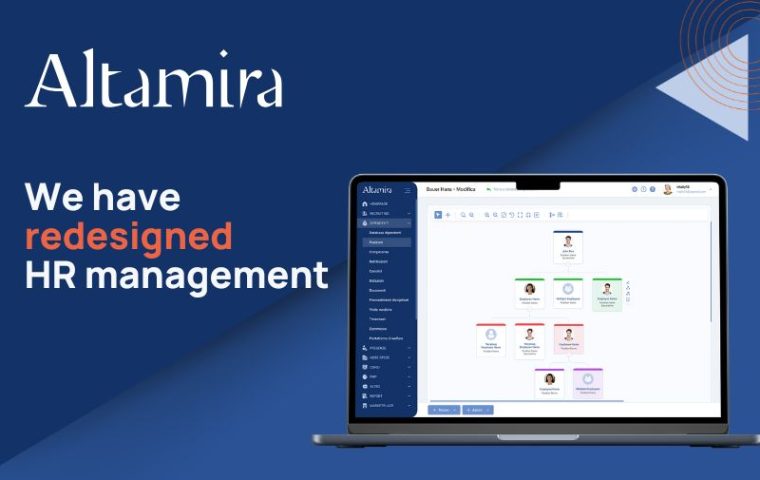As part of our yearly tradition, we’ve reviewed the most talked-about predictions about the future of Human Resources.
Experts worldwide have shared their perspectives on what’s ahead for HR in 2025, focusing on different priorities, technologies, and strategies.
While their viewpoints vary, a clear theme has emerged: HR teams will increasingly turn to technology—especially AI and HRM software automation—to free up time and resources for more strategic initiatives. These include driving Diversity, Equity, and Inclusion (DEI) efforts, adopting agile work models, enhancing employee well-being, and fostering continuous learning.
As a result, the role of HR professionals is set to transform. Administrative and operational tasks are taking a backseat as HR becomes a key strategic partner for business operations.
Below is a ranking of the top HR trends for 2025, compiled from an analysis of 12 trusted articles. The number in parentheses reflects how many articles highlighted each trend.
Enjoy the read!
Top HR Trends to Watch for in 2025
1. Automation and AI (10)
The digitalization of HR processes will continue to accelerate in 2025, driven by advancements in automation and the growing integration of artificial intelligence. Routine administrative tasks—such as attendance tracking and payroll management—will be among the first to benefit from automation.
AI-powered tools, including chatbots and candidate screening systems, will further streamline HR operations, saving time in areas like personnel management and recruitment. By automating these processes, HR professionals will be able to dedicate more resources to nurturing relationships and focusing on strategic planning activities.

2. DEIB (10)
Globally, the focus on Diversity, Equity, and Inclusion is stronger than ever. Employees, above all, want to see concrete initiatives and tangible actions, not just shallow self-promotion. This expectation spans the entire employee lifecycle, from recruiting to management, where individuals should feel empowered to express their voices freely.
While last year’s HR trends emphasized equity, this year many analysts are turning their attention back to belonging—the sense of connection and inclusion that fosters true engagement and loyalty within an organization. Achieving meaningful results in this area will require a strong emphasis on training, particularly for managers.
3. Evolving Work Models (9)
The topic of workplace flexibility is becoming increasingly significant and multifaceted. It’s no longer just about working remotely, in a hybrid model, or on-site—it also encompasses flexible hours, shorter workweeks, and digital nomadism. Despite some multinational companies rolling back flexibility initiatives, the trend appears to be expanding rather than declining. For HR professionals, the time has come to structure and optimize these emerging work models.
There are significant regulatory challenges to tackle, and establishing clear, well-defined policies will be key to preventing misuse and ensuring equitable treatment for all employees. To maintain strong employee engagement and foster seamless collaboration and communication across teams and departments, prioritizing investments in technology and training will be essential.
At the same time, workspaces will need to embrace more flexible and adaptive designs to better support a workforce that engages with physical environments in increasingly varied and dynamic ways.
4. Holistic Employee Well-Being (8)
Employee well-being must address every dimension: physical, mental, and financial. Achieving this requires structured benefit and corporate welfare packages, workplace flexibility, and fostering a positive organizational culture.
Mental well-being stands out as the most pressing focus, with companies aiming to ensure employees feel calm and motivated while mitigating the risk of burnout. A variety of support services are now widely available, including options accessible to SMEs, such as telemedicine, remote psychological consultations, and wellness apps.
At the same time, managers play a critical role in these efforts. Their ability to recognize signs of distress within their teams must be developed through dedicated training programs.
5. HR Analytics and Big Data (7)
The importance of data and its effective use will continue to grow, with companies increasingly working to build massive datasets (big data) designed for AI-driven analysis. To harness the full potential of HR analytics—particularly predictive analytics— HR teams will need to focus on two priorities: acquiring the right technology and building in-house expertise in data interpretation.
HR analytics can be applied in various ways, such as streamlining recruitment processes, identifying organizational inefficiencies, calculating ROI of training initiatives, and forecasting employee turnover. Equally crucial is the ability to act swiftly on the trends and insights these analytics reveal.

6. Continuous Learning (5)
Continuous learning, including upskilling and reskilling, has dropped slightly in the rankings of HR trends for 2025 compared to the previous year. However, with a large segment of the workforce likely to see many of their current skills becoming obsolete in the coming years, this topic is more critical than ever.
Investing in continuous learning will be key, not only to ensure employees stay effective in their roles but also to enable successful internal mobility strategies. HR technology and AI will be instrumental in this area, helping to design personalized training programs tailored to each individual’s needs.
7. Employee experience (5)
Employee experience and employee value proposition are among the key HR trends for 2025, seen as essential for cultivating a productive, satisfied, and loyal workforce. In recent years, the importance of prioritizing employees within organizational processes has been widely acknowledged. Now, however, the time has come to take a more personalized approach.
This involves tailoring every aspect of the employee journey—onboarding programs, career development opportunities, benefits, and promotions—to the unique needs of each individual. While this presents significant challenges, HR technology and AI once again offer powerful tools to simplify and enhance these efforts.

8. Skill-Based Organization (4)
Organizations are increasingly moving toward a skill-based future. Skills, which have long been a cornerstone of the HR field, are set to become central to all key human resource management processes.
This shift starts with recruitment, as companies adopt a skill-based hiring approach that prioritizes evaluating candidates’ capabilities over their formal qualifications. By focusing on skills instead of credentials—and leveraging recruiting AI—employers can significantly broaden their talent pool, tapping into a diverse range of candidates with strong transferable skills.
Training and development will also increasingly center on skills, equipping employees with the tools they need to navigate the rapid changes shaping the modern workplace.
9. Digital Ethics (3)
The use of artificial intelligence continues to raise significant ethical concerns, particularly in sensitive processes that directly impact individuals within the organization. As HR leaders implement digital transformation initiatives and integrate these technologies, they must strike a careful balance between innovation and security, with a strong emphasis on privacy, transparency, and eliminating bias.
10. Redefining the HR Role (3)
As we’ve seen, technology is playing a pivotal role in reducing the burden of less “noble” tasks for HR departments. This, along with other ongoing transformations, is redefining the role of HR professionals—shifting them away from administrative functions and establishing them as key strategic partners for the business.
However, this transformation can only succeed with a long-term vision, the development of strategic and analytical skills, and a clear mandate from leadership to shape organizational culture and drive innovation.
11. Candidate-Centric Approach (2)
In a persistently competitive job market, companies are expected to invest more heavily in employer branding and recruitment marketing. This means creating multiple pathways for talent acquisition while building a strong reputation as an employer of choice.
Candidates must be at the heart of a transparent, increasingly personalized, and empathetic recruitment process— one that delivers a lasting positive impression from the very first interaction. Achieving this requires the collective effort of the entire organization, not just the recruitment team.
12. Attracting Gen Z (2)
Among the HR trends for 2025, attracting Generation Z remains a topic of discussion, although it has become less prominent than in previous years. This change reflects the fact that Gen Z has already established itself as a significant part of the workforce and that organizations have come to better understand—and, in many cases, admire—this generation.
For many Gen Z employees, factors such as professional growth, social responsibility, innovation, and consistency between a company’s promises and actions carry more weight than salary when choosing an employer. As such, companies aiming to attract them must prioritize building a genuinely ethical and socially responsible business model.
13. Focus on ESG Criteria (2)
A growing focus on ESG (Environmental, Social, and Governance) criteria is also emerging as an HR trend for 2025. These parameters, which increasingly influence both financial performance and talent attraction and retention, are becoming a priority for many organizations.
HR departments have a critical role to play in this area and should lead the charge in driving sustainability initiatives across the organization. This could include providing sustainability training for employees, promoting small, everyday eco-friendly practices, and adopting green procurement policies.
At this point, organizations are expected to actively contribute to combating climate change—an effort that candidates and employees alike are bound to appreciate.
14. Work-life Balance (2)
Achieving a healthy work-life balance will remain a top priority for companies that recognize its critical impact on employee performance. Trials of a four-day workweek have delivered promising results so far, with many governments advocating for its broader adoption by businesses.

15 Pay Transparency (1)
Pay transparency laws, already in place in parts of the United States and slated for implementation across Europe by 2026, are set to bring greater clarity to employer-employee relationships. Many companies are getting ahead of the curve by including salary ranges in job ads and fostering more open communication among employees.
Studies show that pay transparency increases response rates to job advertisements and makes salary negotiations with candidates more straightforward.
Sources
Alma Laboris, Alp consulting, Bologna Business school, Empxtrack, Engagedly, GoCo, Human in progress, ifeel, Jeremy Lamri (Medium), JObros, Lift HCM, PeopleHR.
Copyright: ©girafchik/Adobe Stock.














